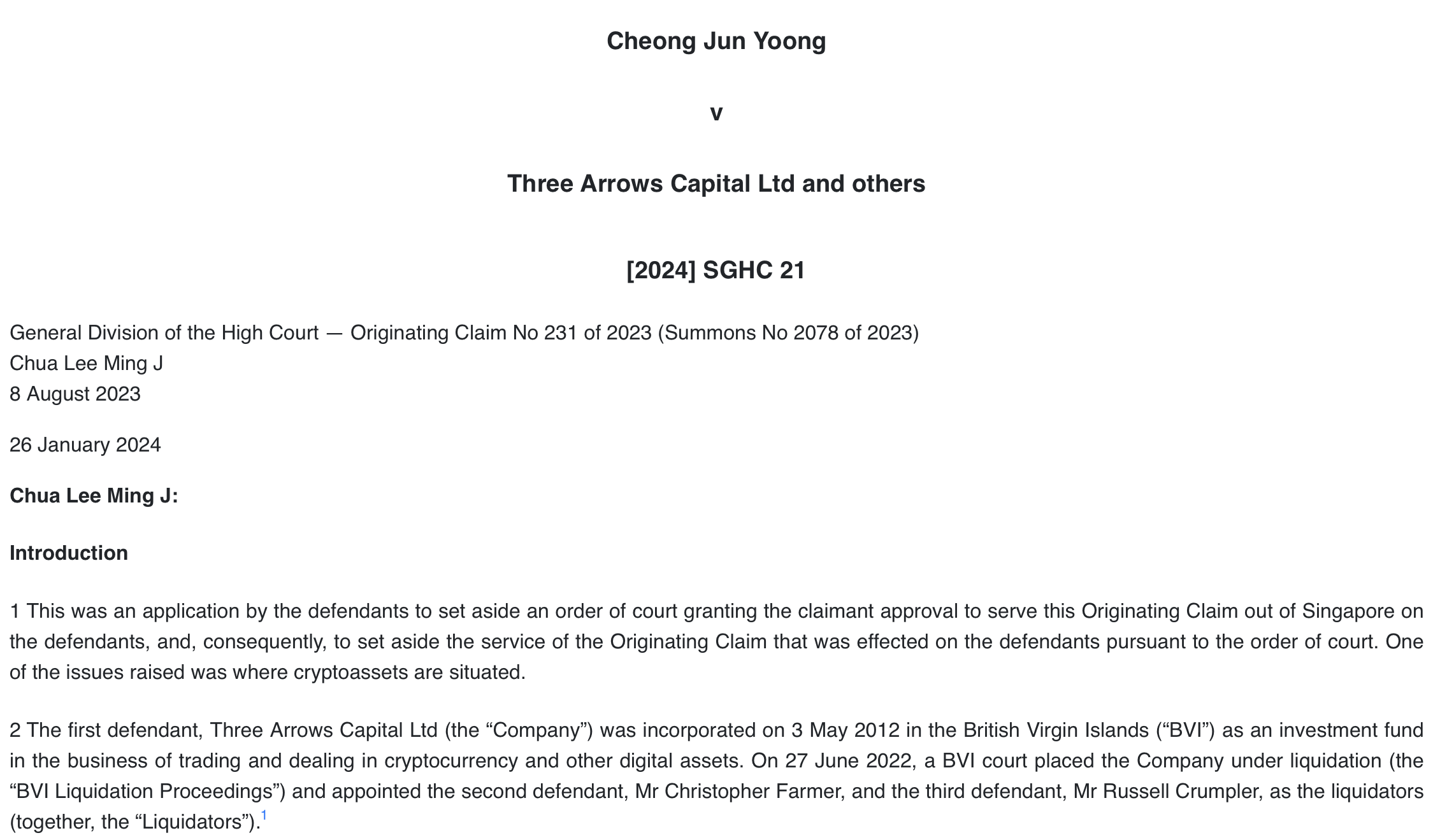Singapore’s High Court has recently made a critical decision, siding against the now-bankrupt cryptocurrency hedge fund, Three Arrows Capital (3AC). The court has dismissed 3AC’s attempt to throw out a lawsuit initiated by Cheong Jun Yoong, more popularly known as Arthur Cheong, the innovative mind behind Web3 investment firm DeFiance Capital. This development marks a significant turn in a saga that intertwines financial innovation with legal intricacies.
The Genesis of the Dispute
The origins of this high-stakes legal battle can be traced back to an agreement between Cheong and 3AC founders, Su Zhu and Kyle Davies. The trio embarked on a venture to establish an independent fund, ultimately known as DeFiance Capital, under the expansive umbrella of the 3AC Group. This arrangement granted DeFiance access to vital resources from 3AC, including middle- and back-office support, auditors, and fund administrators. In return, DeFiance agreed to pay a portion of its earned fees to Zhu and Davies.
As 2022 unfolded, DeFiance’s accounts burgeoned with a mix of cryptocurrencies and fiat, amounting to millions. Notably, 3AC facilitated DeFiance’s operational needs by setting up subaccounts in major crypto exchanges and ensuring dedicated workspace in their custody provider’s platform. However, the landscape shifted dramatically when 3AC relocated its headquarters to Dubai. During this transition, certain assets, whose value remains undisclosed in court documents, were not transferred to DeFiance as per the initial agreement.
Legal Entanglements and the Trust Factor
The plot thickened in July 2022 when 3AC declared bankruptcy, triggering a chain reaction in the crypto market and revealing the firm’s staggering $3.3 billion debt to creditors. November saw DeFiance Capital stepping forward, with the Singapore High Court’s permission, to sue 3AC’s estate to reclaim assets still under the latter’s control. On the same day, 3AC filed counterclaims, adding another layer to the legal labyrinth.
A pivotal point in this legal narrative was the court’s finding regarding the crypto assets in Fireblocks wallets. Despite 3AC’s dismissal of the claims as meritless, the court recognized a trust relationship, noting that a trust could exist contrary to what legal documents might suggest. The court also underscored Singapore’s role as the suitable jurisdiction for the lawsuit, citing the country’s legal nexus and the location of the person controlling the wallet keys.
The Controversial Su Zhu and the Ripple Effect
Su Zhu, a figure as controversial as he is influential in the crypto space, has recently emerged from a brief stint in prison, which he describes in paradoxically positive terms. Zhu’s social media presence has always been a blend of audacity and insight, whether during 3AC’s heyday or in the aftermath of its spectacular implosion. His recent comments, suggesting that a prison experience can be ‘enjoyable,’ reflect a uniquely Zhu-esque perspective on life’s trials.
The collapse of 3AC had far-reaching effects, contributing to a domino effect in the crypto market and erasing trillions from investors’ portfolios. Zhu and Davies’s globe-trotting post-bankruptcy, combined with their reluctance to cooperate with investigators, has only fueled the controversy surrounding them. Despite their denials of wrongdoing, the duo’s actions have drawn scrutiny from Singaporean authorities and allegations from lenders of fraud and record falsification.





